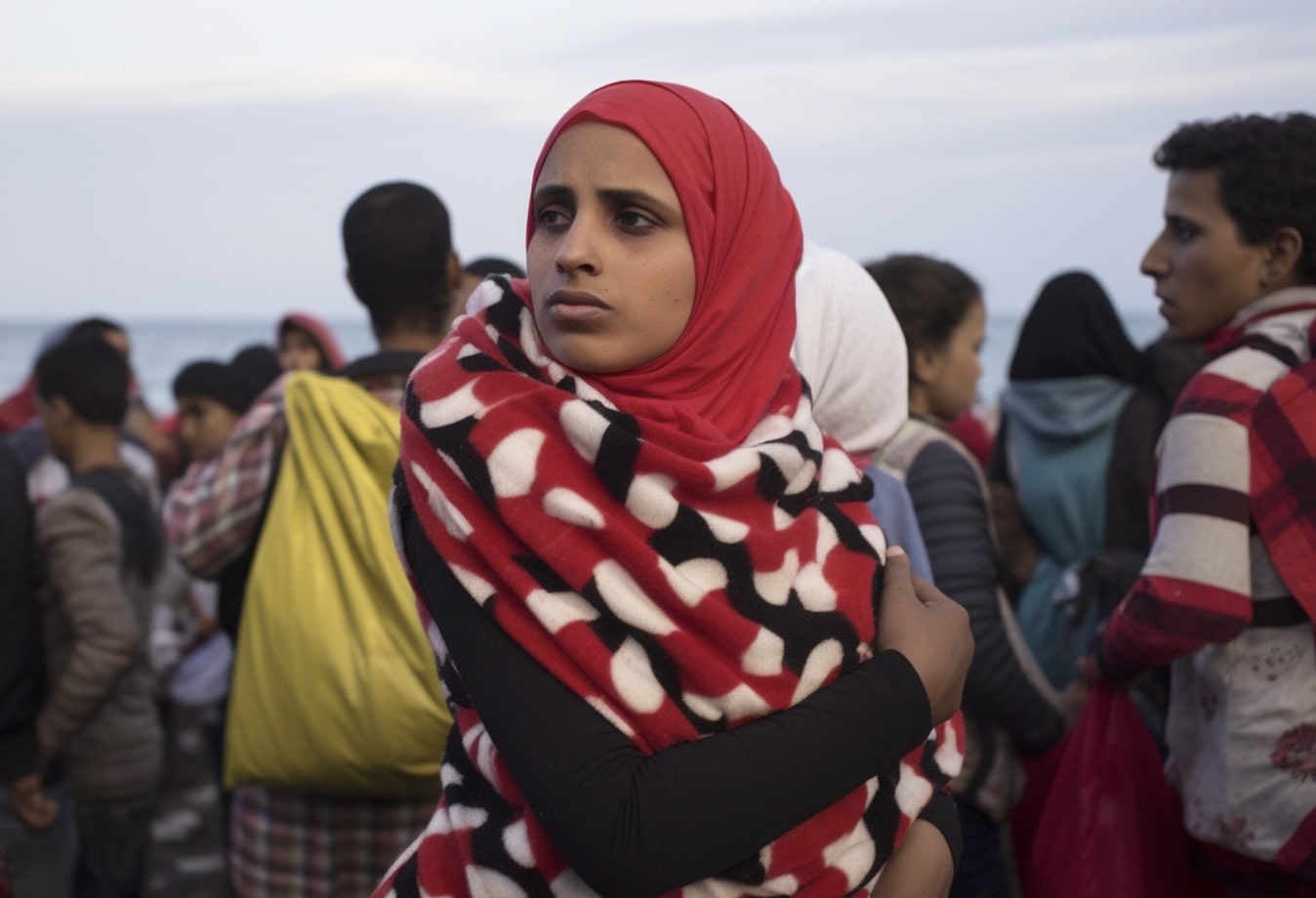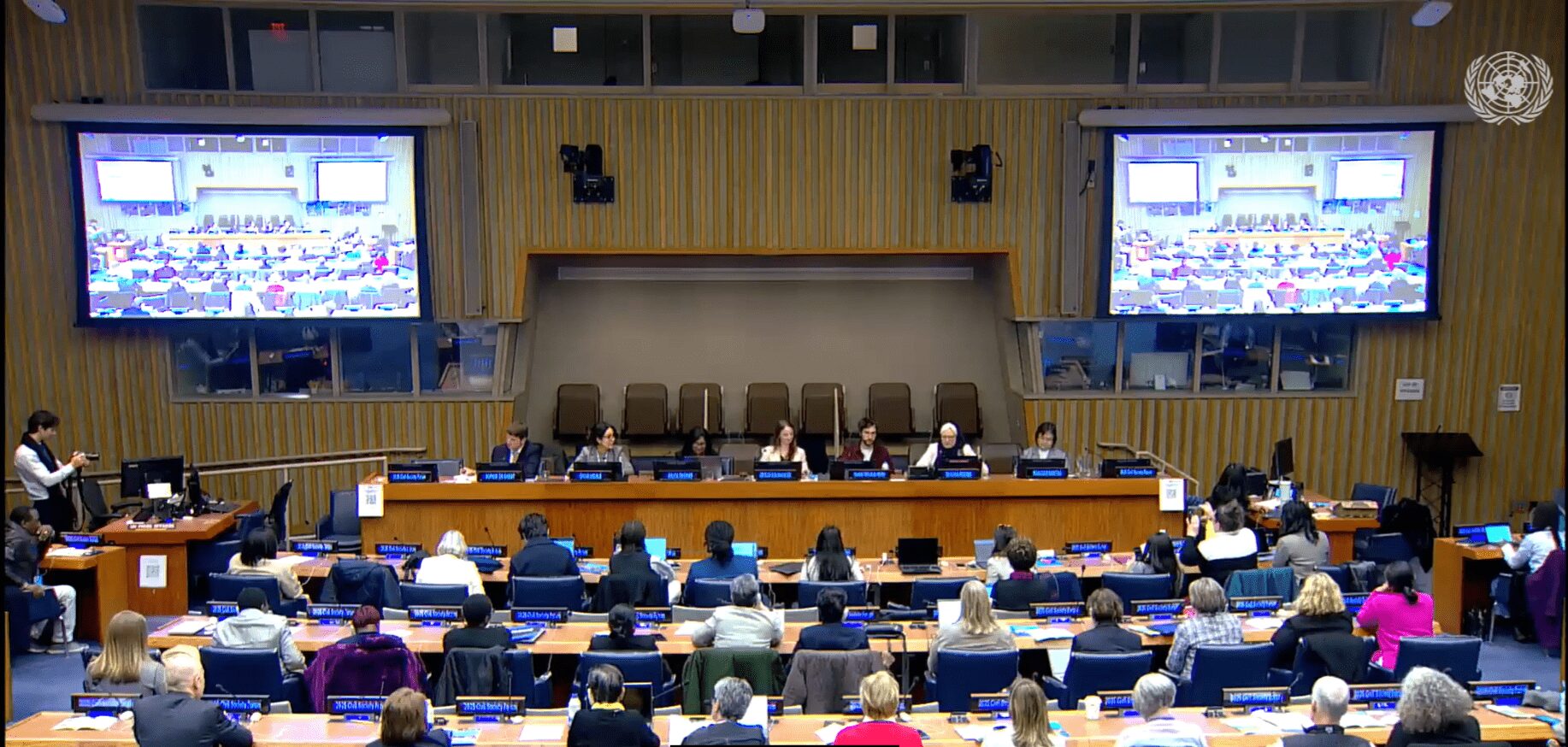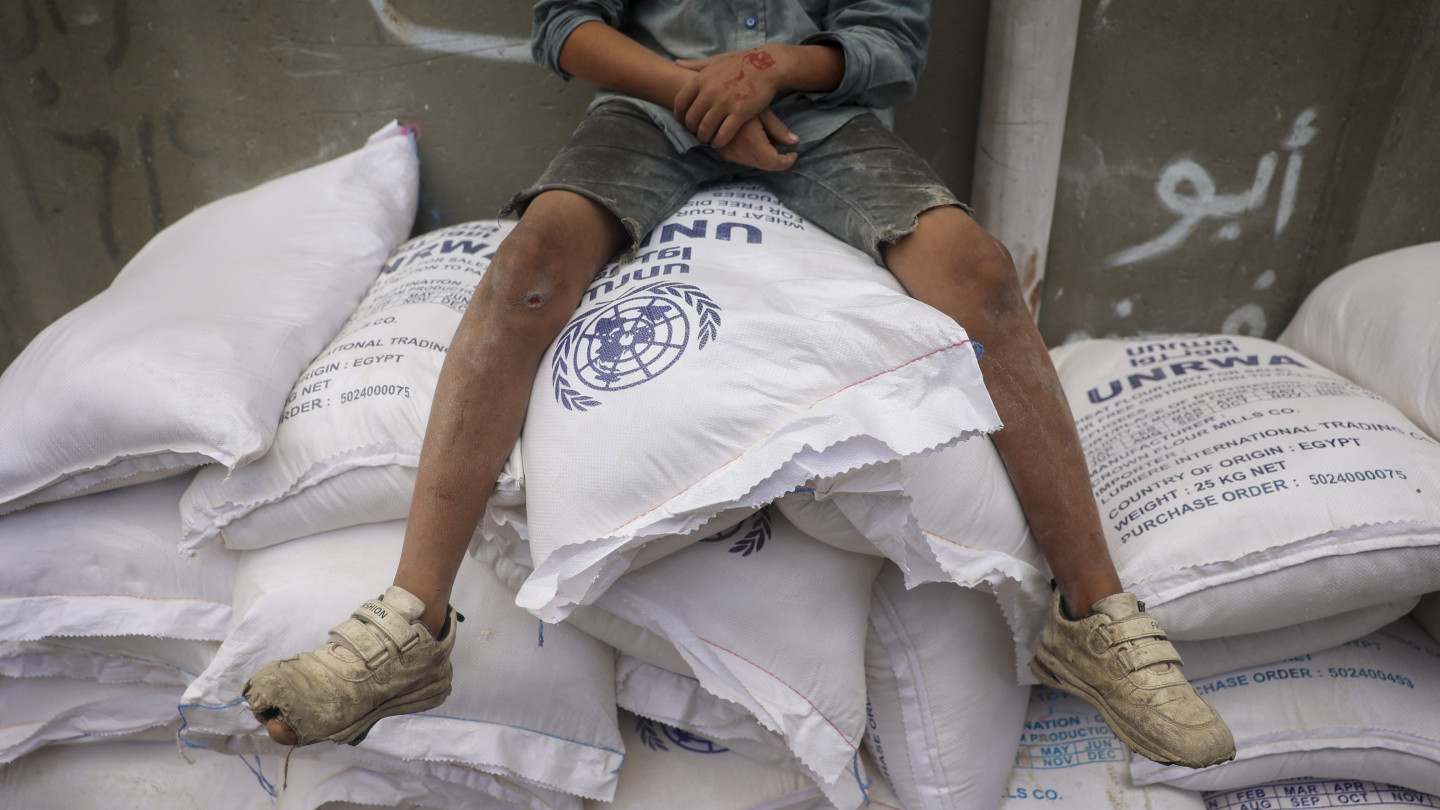
12 June 2025
By Renée Boskaljon
This post was originally published at the New Arab on 2 June 2025
In early May, Reuters obtained a confidential UN document outlining far-reaching reform proposals aimed at streamlining the organisation’s broad operations, improving efficiency, and cutting costs.
The document cites “geopolitical shifts” and “significant cuts to foreign aid budgets” as factors that are undermining the UN’s legitimacy and effectiveness.
These changes, now under consideration by senior UN leadership, are part of Secretary-General António Guterres’ UN80 initiative, introduced in March in anticipation of the UN’s 80th anniversary this year.
The memo proposes merging dozens of UN bodies into four pillars: peace and security, humanitarian affairs, sustainable development and human rights. Its recommendations include, amongst others, plans to combine the operational activities of the World Food Programme, UNICEF, the World Health Organisation and the UN Refugee Agency.
“The need to reform the UN system has been debated for decades,” Niels Harild, a Danish development policy expert with over 40 years of experience at international organisations such as the World Bank and UNHCR, told The New Arab.
“One of the major problems is mandate creep. UNICEF is running large-scale health programs that would more naturally fall under the WHO. And UNHCR, whose primary mandate is refugee protection, is managing major water and sanitation projects. Everyone is doing everything. It’s costly and inefficient.”
The latest push for reform, triggered in part by the USAID freeze, may have been inevitable and even long overdue. But the real question, Harild says, is whether these changes are being properly planned.
He warns that the current wave of reform risks “throwing out the baby with the bathwater,” arguing that the sweeping changes forced by drastic and sudden aid cuts now have to be rushed through without enough thought for their long-term impact on global humanitarian work.
Aid cuts
Discussions to reform the UN system are being held amidst escalating humanitarian needs in places like Gaza and Sudan, where vulnerable communities most acutely feel the consequences of funding cuts.
Aid organisations say Sudan’s civil war, now entering its third year, has become the most severe humanitarian crisis in decades. For the first time in modern humanitarian history, more than 30 million people in a single country are in need of humanitarian aid.
Nearly 13 million people have been forced from their homes by violence over the past two years, making this one of the largest displacement crises since World War II.
The United States provided $830 million in emergency assistance last year, reaching 4.4 million people in Sudan.
But when the Trump administration cut off that lifeline in January by dismantling the US Agency for International Development (USAID), the impact on the Sudanese people has been devastating.
Other wealthy nations have failed to step in and close the funding gap left behind by the USAID freeze. On the contrary, other major donor countries, including the UK, Germany, the Netherlands, and France, have also cut back their foreign aid budgets.
The UK plans to cut aid spending from 0.5% to 0.3% of gross national income starting in 2027, amounting to an annual reduction of roughly £6 billion, as part of Prime Minister Starmer’s strategy to increase defence funding.
Britain’s development minister, Jenny Chapman, stated earlier this month that “the days of viewing the UK government as a global charity are over”.
Powerplay
The UN has long called for efforts to localise development aid, intending to reduce costs and recognising that local actors are better capable of implementing programmes with a sustainable outcome.
Yet according to Avishan Chanani, a senior Iranian-American consultant with over 20 years of experience in international humanitarian and development work, particularly in the Middle East, “localisation is more rhetoric than reality”.
She explains that decisions about where and how aid is delivered are often made far from the communities most affected. “Rather than responding to realities on the ground, donors routinely shape aid around their geopolitical agendas. Key decisions are made in capital cities thousands of miles away from the actual crises,” Chanani told TNA.
In this power dynamic, she adds, “INGOs, many of which are heavily dependent on donor funding, end up serving as conduits for donor priorities, rather than acting as independent humanitarian or development actors.”
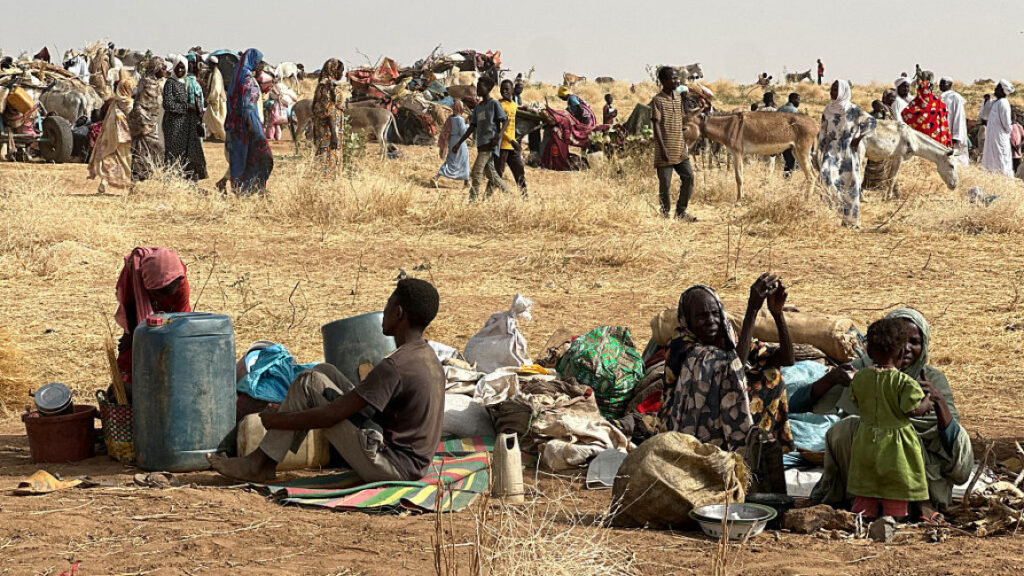
This is reflected in Gaza, where the humanitarian crisis deepens and aid channels are increasingly politicised. While the UN and many NGOs have so far resisted Israeli-US proposals to funnel all Gaza assistance through militarised logistics hubs, growing resource constraints are making it harder to hold the line.
This is also reflected in the UN migration agency’s collaboration with the Trump administration. The UN agency, which derives 40% of funding from the US, has controversially worked with the US government to assist its so-called self-deportation programme in which unauthorised migrants are threatened to leave, or face deportation or criminal persecution.
“The drastic global reduction in humanitarian funding will deepen already entrenched inequalities within the global aid system,” according to Chanani. “It’s about whose priorities get protected when the money dries up. When objectives shift or funding becomes politically inconvenient, support is simply withdrawn, regardless of actual need.”
Refugees become pawns
Western donor countries have long shaped humanitarian aid according to their own geopolitical interests. In recent years, this has increasingly meant efforts to contain refugees in countries far from their own borders.
A stark example is Uganda, which hosts over 70,000 Sudanese refugees among a total refugee population of nearly 1.8 million.
According to Micheal Gumisiriza, a Ugandan humanitarian practitioner who works with refugee-led organisations, aid funding in Uganda is deeply entangled in a global power struggle in which “refugees remain pawns in a chess game”.
“The Ugandan government is using its position as a major refugee host as leverage,” he says. “The international community is willing to pour money into the country to keep refugees from reaching their borders. In return, they turn a blind eye to corruption, poor governance, and political repression.”
Now, as traditional Western donors withdraw, a power vacuum is emerging, one that new global players are eager to fill.
“Cuts in USAID create space for other countries to step in and influence humanitarian efforts in Uganda and elsewhere in Africa,” Gumisiriza explains. “We’re increasingly seeing China get involved, and more countries pivoting toward Russia.”
He warns that this shift could have severe consequences for local populations. “These authoritarian governments care even less than the West about how our leaders treat us,” he says.
“They’re focused on securing markets and taking our minerals. In the process, Uganda’s dictators will be further emboldened.”
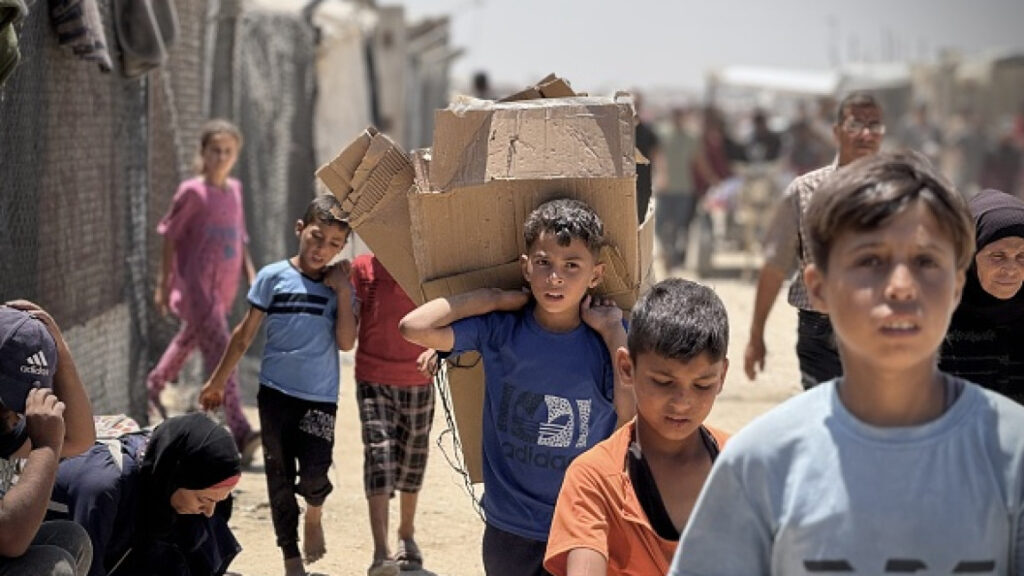
Legitimacy crisis
“Effective and sustainable implementation of scarce funding within the UN system is more important than ever,” argues development expert Harild.
“We need to get rid of the traditional humanitarian model. While short-term aid like food and cash is vital during emergencies, it’s unsuitable to address long-term needs. Instead, we should focus on development aid, investing in economic evolution, education, infrastructure, and local economies to help the poorest states and their communities on a trajectory out of poverty and become economically self-reliant.”
For many, the deeper issue lies in the structure of the international aid system itself. According to Chanani, the question is not whether UN reform is possible, but whether there is political will to truly restructure the current model.
“To support sustainable, community-owned development, UN agencies and INGOs need to go beyond simply ‘partnering’ with local organisations,” Chanani explains. “They need to cede space, shift decision-making power to local actors, redirect resources to those closest to the work, and recognise that expertise isn’t defined by English fluency or institutional logos.”
She adds that the current moment calls for more than just appeals for emergency funding.
“It requires a reckoning: Who controls resources? Whose lives are prioritised? What kind of humanitarianism are we actually defending? Without this reckoning, we’re not just facing a funding crisis, we’re facing a crisis of legitimacy and values.”
Renée Boskaljon is a freelance journalist and migration researcher based in Spain
